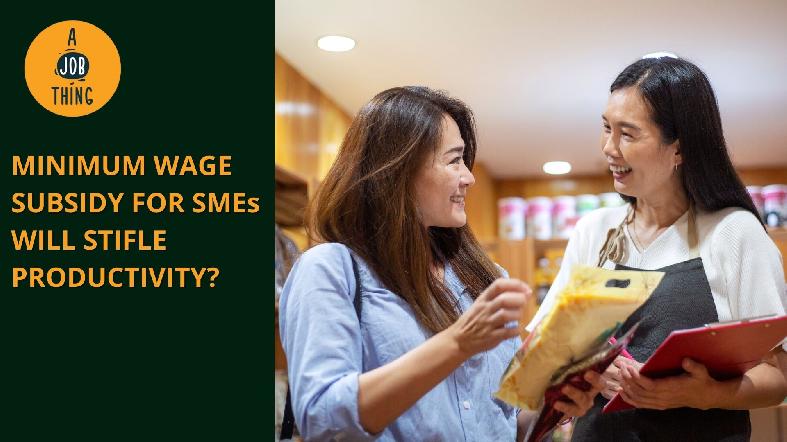
Is Minimum Wage Subsidy for SMEs a Good Idea?
Are You Hiring?
Find candidates in 72 Hours with 5+ million talents in Maukerja Malaysia & Ricebowl using Job Ads.
Hire NowAn economist said the government should not consider the proposal to subsidise the RM1,500 minimum wage for small-medium enterprises (SMEs) that cannot afford to pay the amount as it will stifle productivity.
Geoffrey Williams from the Malaysia University of Science and Technology stated that even though the proposal was feasible, "it should not be done".
He said the proposal would also subsidise 'zombie' or inefficient businesses, which is not the aim of the minimum wage. He also noted that the minimum wage subsidy would be open to abuse.
How companies could abuse the subsidy
Williams explained that employers could pay a low wage as the government would top up the salary, and they could pocket the balance for their own gain.
He added that it is not viable to monitor this type of abuse, both in terms of cost and technical.
He stated that it would be far better for the government to assist SMEs in paying the minimum wage by helping them to improve their business model instead of subsidising them to maintain bad management and businesses.
Tax credits and negative income tax
Williams also recommended that tax credits or negative income tax be utilised rather than minimum wage subsidy.
Under this proposal, he said those who earn below a threshold would receive a tax credit instead of paying tax.
He explained that the threshold could be a living wage, a minimum wage, or a Universal Basic Income (UBI), depending on the benefits and costs which the government needs to study.
He added that these policies would offer a better incentive than wage subsidy or minimum wage as it was related to income earned instead of a lump sum, and the government could handle it via the tax system.
The minimum wage subsidy proposal
Williams responded to the latest proposal by Parti Sosialis Malaysia (PSM) that the government should help SMEs which could not pay the RM1,500 minimum wage to their employees. The party also said the government could do so by slowly increasing tax rates on wealthy persons and companies and using the revenue to cross-subsidise the SMEs.
On the tax increase proposal, Williams explained that imposing higher taxes on wealthy people was not the solution. He said that it was a "disincentive" and would not increase much in government revenue.
Another economist, Barjoyai Bardai, from Universiti Tun Abdul Razak, stated that a minimum wage subsidy would be expensive as the government would have to spend billions of ringgit every year on the subsidy.
He said that the better solution is to exempt SMEs from the new minimum wage policy, although it would mean a double standard. He added that the main problem with the new minimum wage rate was that the wage policy would compel SME employers to pay salaries above productivity levels.
Barjoyai recommended that the government focus on helping SMEs raise their productivity by investing in equipment and technologies to assist these companies. Then, the SMEs can afford to increase their workers' salaries.
He also opposed PSM's tax increase proposal, saying that it would result in companies relocating to nations with lower corporate tax rates and tax evasion by wealthy businessmen.
Source: Free Malaysia Today

